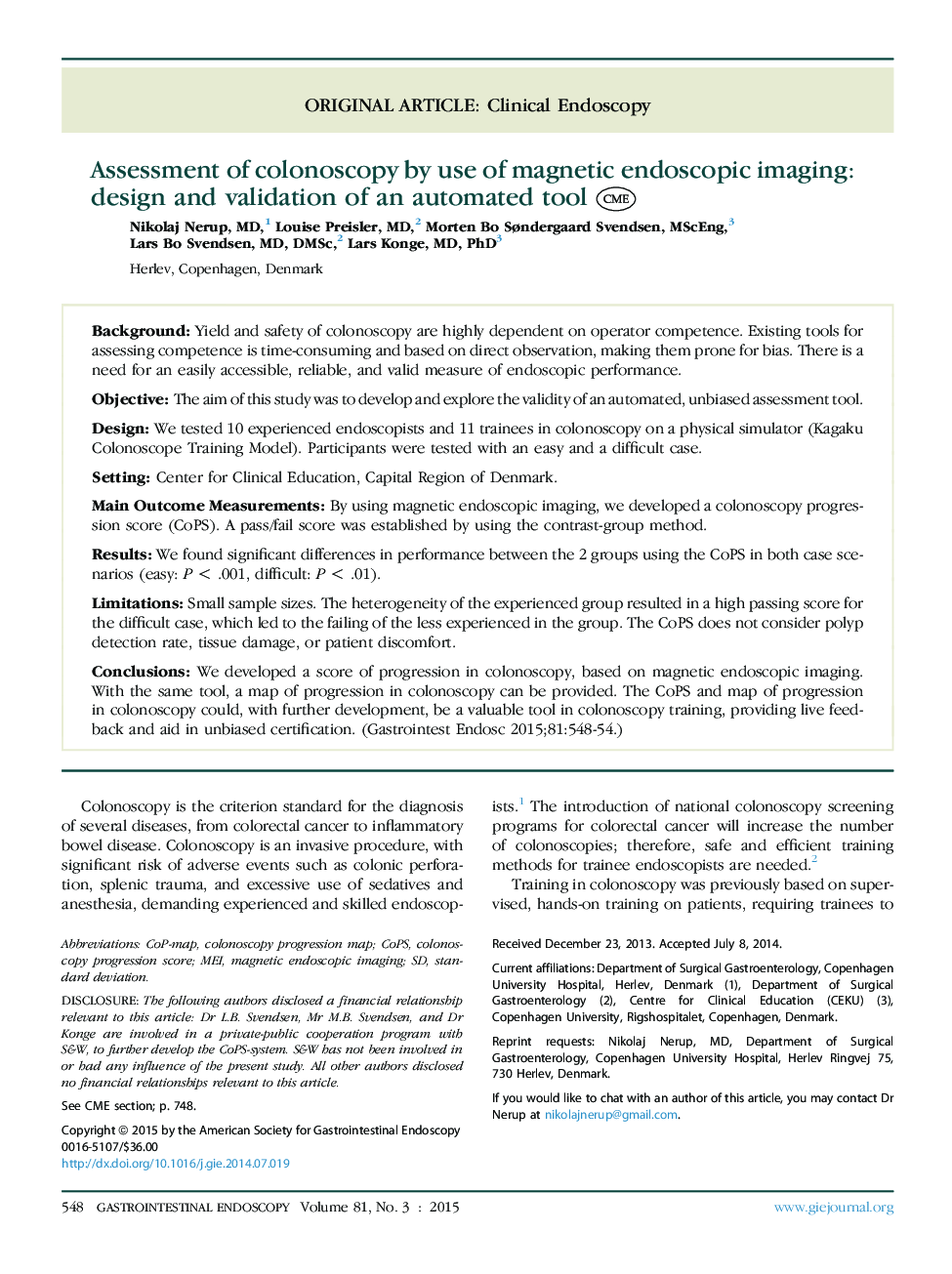| Article ID | Journal | Published Year | Pages | File Type |
|---|---|---|---|---|
| 6097402 | Gastrointestinal Endoscopy | 2015 | 7 Pages |
BackgroundYield and safety of colonoscopy are highly dependent on operator competence. Existing tools for assessing competence is time-consuming and based on direct observation, making them prone for bias. There is a need for an easily accessible, reliable, and valid measure of endoscopic performance.ObjectiveThe aim of this study was to develop and explore the validity of an automated, unbiased assessment tool.DesignWe tested 10 experienced endoscopists and 11 trainees in colonoscopy on a physical simulator (Kagaku Colonoscope Training Model). Participants were tested with an easy and a difficult case.SettingCenter for Clinical Education, Capital Region of Denmark.Main Outcome MeasurementsBy using magnetic endoscopic imaging, we developed a colonoscopy progression score (CoPS). A pass/fail score was established by using the contrast-group method.ResultsWe found significant differences in performance between the 2 groups using the CoPS in both case scenarios (easy: PÂ < .001, difficult: PÂ < .01).LimitationsSmall sample sizes. The heterogeneity of the experienced group resulted in a high passing score for the difficult case, which led to the failing of the less experienced in the group. The CoPS does not consider polyp detection rate, tissue damage, or patient discomfort.ConclusionsWe developed a score of progression in colonoscopy, based on magnetic endoscopic imaging. With the same tool, a map of progression in colonoscopy can be provided. The CoPS and map of progression in colonoscopy could, with further development, be a valuable tool in colonoscopy training, providing live feedback and aid in unbiased certification.
